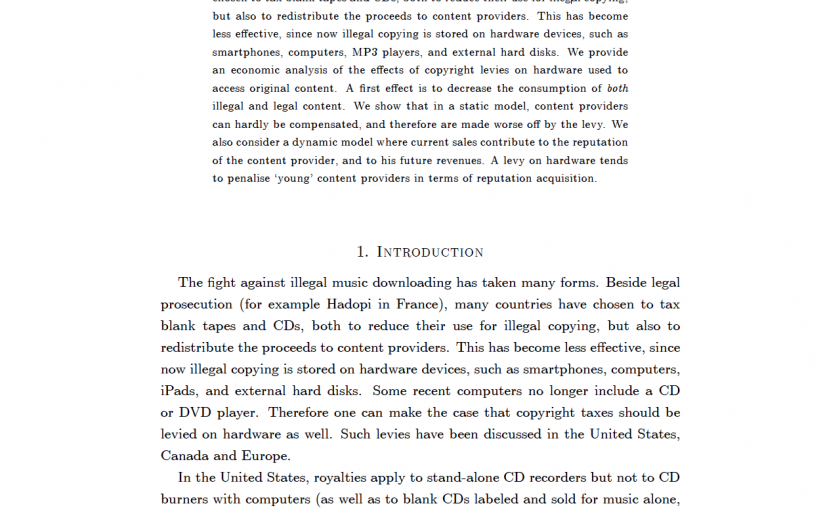The Economics of Copyright Levies on Hardware
(Winner of 2013 RERCI Best paper)
The fight against illegal music downloading has taken many forms. Beside legal prosecution (Hadopi in France, for example), many countries have chosen to tax blank tapes and CDs, both to reduce their use for illegal copying, but also to redistribute the proceeds to content providers. This has become less effective, since now illegal copying is stored on hardware devices, such as smartphones, computers, MP3 players, and external hard disks. We provide an economic analysis of the effects of copyright levies on hardware used to access original content. A first effect is to decrease the consumption of both illegal and legal content. We show that in a static model, content providers can hardly be compensated, and therefore are made worse off by the levy. We also consider a dynamic model where current sales contribute to the reputation of the content provider, and to his future revenues. A levy on hardware tends to penalise `young’ content providers in terms of reputation acquisition.

